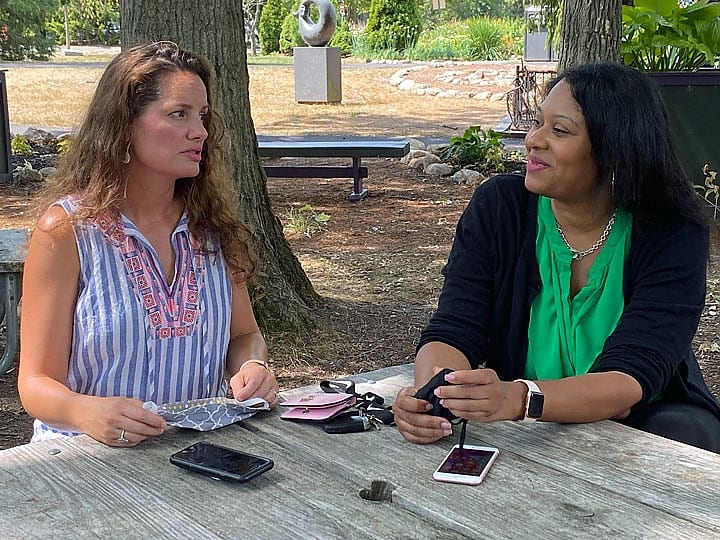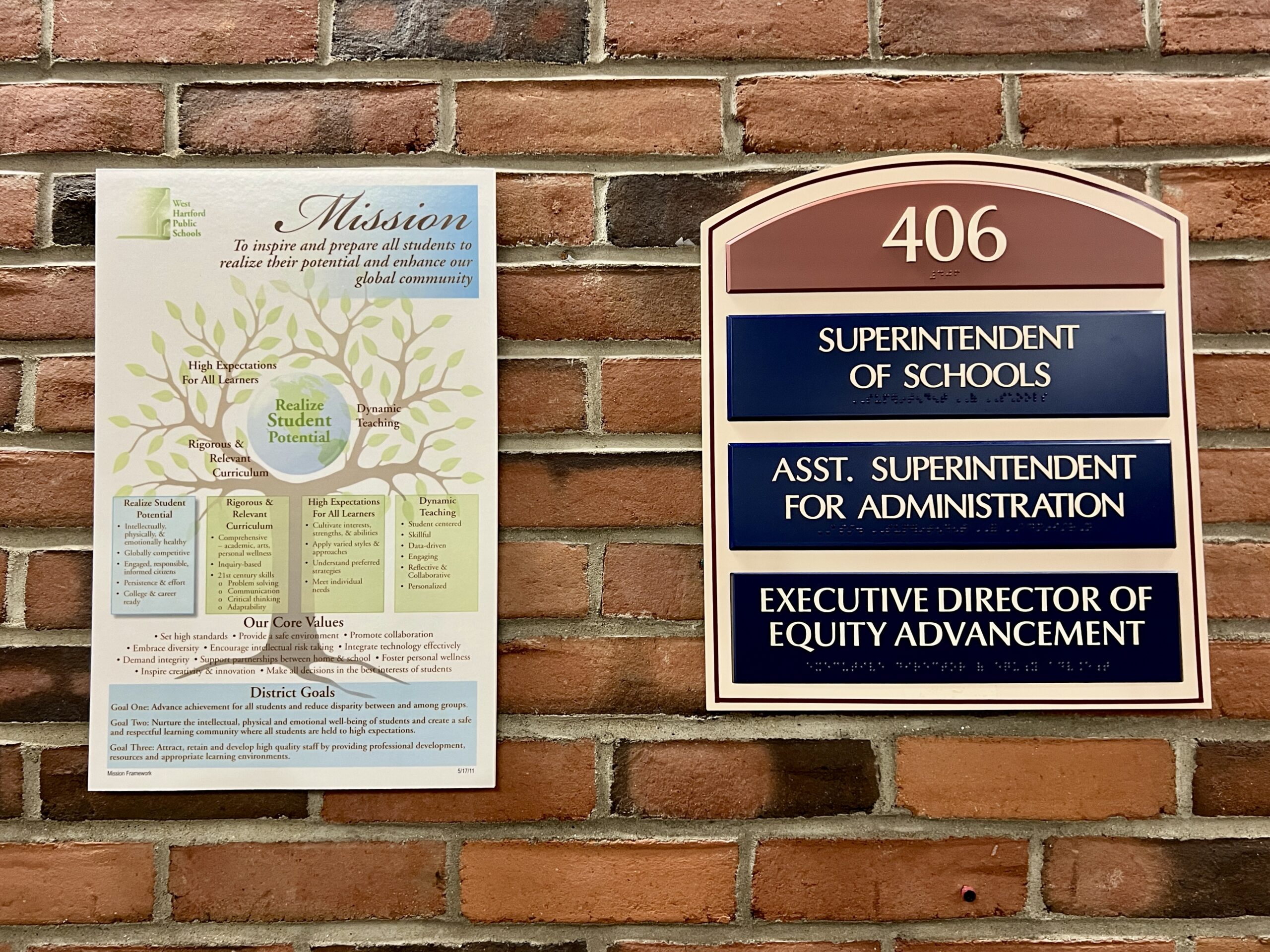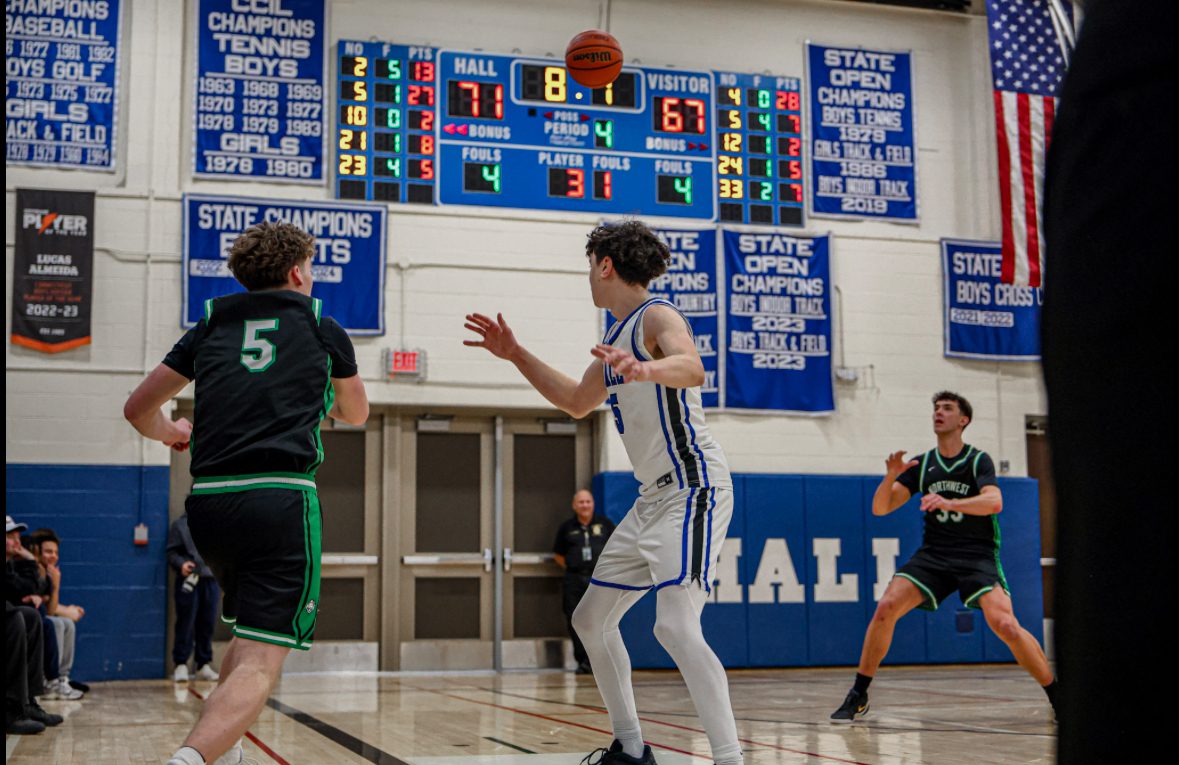Teachers, Parents, Hoping to Find Educational Support Safely in Learning Pods

Audio By Carbonatix

Celeste Forst and Tia Miller are pod match makers and teachers. Photo credit: Steve Jensen, courtesy of CTNewsJunkie.com
West Hartford resident Tia Miller, a former teacher in Hartford, is organizing learning pods in West Hartford and other towns in the area along with Celeste Forst.
By Steve Jensen, CTNewsJunkie.com
Celeste Forst’s decision to resign from her teaching job last week out of fear of contracting COVID-19 in the classroom was agonizing, but at the same time a no-brainer.
“The choice was simple, easy, yet heartbreaking and painful,” Forst wrote in her letter of resignation from a northeast Connecticut school system where she had taught art for seven years. “I am making the choice that is right for me and my family. I am making the choice that protects my mental, emotional and physical well-being.”
So instead of teaching in-person classes this fall, Forst and a growing number of other educators will be teaching in a home-based “pandemic pod” that allows no more than six students.
The pods are quickly becoming an emerging way for students to learn outside of school but under the supervision of a certified teacher three days a week – creating a less-risky environment for both students and teachers than may be had in a public school.
Forst will be teaching one of the approximately 10 pods being organized by her and Tia Miller, a former teacher from West Hartford who is adding a pod service to her youth-oriented event planning business, CreativistaCharm.
Looking to perhaps place her eighth-grade son in a pod, Miller published a social-media post in late July trying to gauge interest from other parents. The response she got was so immediate and overwhelming that she decided to get into the pod business herself.
“That whole first weekend all I did was answer my phone and texts and emails about this,” Miller said Monday. “Everybody was saying ‘Help me!’”
She now has a town-based spreadsheet listing more than 120 potential clients.
Pods would be based in one of the six student’s homes three days a week, always with a certified teacher and homeowner present, and the approximately $1,000 weekly cost would be split by the students’ families.
Teachers will use only the town’s learning curriculum, and are present to help students with their assignments and ensure they are staying on task. Students can be of mixed ages, and the hours and teaching days selected are up to the pod members.
“Each pod is unique and can make their own rules,” Miller said.
Emphasis will be placed on creating pods with students from the same neighborhood, school district or geographical area whenever possible.
The state Department of Education has no official oversight of pods, but has released guidance on so-called “microschooling.” It is based on state law that mandates parents who are removing their children from public school are “able to show that the child is elsewhere receiving equivalent instruction in the studies taught in the public schools.”
The guidance has typically applied to homeschooling, but the pandemic has put a new twist on the issue.
Recently updated guidance says that parents considering a pod may do so under the state’s “Temporarily Opting into Voluntary Remote Learning Due to COVID-19” regulations.
“This is a movement that has gotten started nationally and is gathering support and members in Connecticut,” said Peter Yazbak, spokesman for the state education department.
Yazbak said the new regulations recognize that pods differ from homeschooling in that they are “a more coordinated effort to provide at-home learning.”
Miller said any residence that is being considered for hosting a pod is inspected by her or Forst for health and safety compliance such as smoke detectors, and for necessary services like high-speed internet.
Monday afternoon, she had inspections scheduled for homes in West Hartford and Ellington.
Parents who decide to create a pod are also given the opportunity to interview prospective teachers by video conference.
With the opening of schools fast-approaching, Miller and Forst acknowledge that they and the families they sign up are heading into unchartered territory.
“Education is never going back to the way it was,” said Forst, who also teaches online art classes to students around the globe. “This is very stressful, but it’s exhilarating.”
Miller, who taught for 20 years in Hartford schools, has also organized large events such as “Connecticut Teen Night,” which drew more than 500 young people to Hartford’s Dunkin’ Donuts Park last summer. Her Instagram account with the same name has more than 20,000 followers.
“I’m an innovator and I’m an entrepreneur and I love doing that,” she said. “But my passion is being an educator and working with children and this will allow me to keep doing that while I help other families.”
Forst, who has been an active, vocal member of local and statewide teacher unions, says her resignation is one of an increasing number that she believes are being made as the school year closes in, with many districts adopting full- or part-time in-classroom learning models.
“I’m in a lot of teachers’ groups and I know a lot of teachers are resigning,” she said. “A lot were holding out until the last week or so because we still had hope (of schools adopting remote learning). But when that didn’t happen, it was just exasperating. A lot of teachers are terrified.”
There’s also a concern, however, that learning pods will further exacerbate the achievement gap because only parents and families with means will be able to afford to join a pod.
Miller and Forst would like to see the nonprofit community step in and help out with the cost so that it’s affordable for everyone.
Casey Cobb, Neag Professor of Educational Policy at UConn, said “What’s happening is a lot of the more privileged, advantages families are able to do that because of their resources and means, while several other families may not have the resources.”
Gov. Ned Lamont agreed Monday that a lot of kids don’t have an opportunity to create a pod.
“Thirty percent of the kids didn’t even turn their computer on the last time around, even though we provided them computers,“ Lamont said. “I don’t want to do anything to exacerbate that achievement gap.”
Republished with permission from CTNewsJunkie.com, all rights reserved.
Like what you see here? Click here to subscribe to We-Ha’s newsletter so you’ll always be in the know about what’s happening in West Hartford! Click the blue button below to become a supporter of We-Ha.com and our efforts to continue producing quality journalism.



